The post Planning Your Las Vegas Live Poker Debut? Here are a Few Tips for a Great Experience! appeared first on Championnat-De-Poker.
]]>Poker etiquette includes more than basic rules like slow rolling, angle shooting, and tipping the dealer. Experienced players often criticize others for displaying “poor etiquette” at the table.
This article provides examples of unwritten poker rules within the community, which even the pros uphold to keep the game respectful. But be warned. This article doesn’t claim the moral high ground. It also does not establish dead-set rules or assert to be the final authority on poker etiquette.
Knowing the general and unwritten etiquette rules is essential for players to improve their gameplay and appear experienced. Check out these tips to enhance your social game today! And above all, have a fun, memorable poker experience!

Rules on Tipping Your Dealer
Tipping customs differ based on the country and industry. Tipping is necessary in some places to support workers’ livelihoods, while it could be seen as offensive in others. In poker, tipping is typically expected and crucial for dealers’ earnings. Similar to servers and bartenders, dealers heavily rely on tips, especially in countries like the United States, where service industry wages are frequently inadequate.
Although some players may be hesitant to tip their dealers, it’s crucial to acknowledge the integral role dealers play in poker games. Without tips, dealers may pursue other job opportunities to make a living.
Therefore, it’s generally accepted in the poker community to tip dealers generously, although there’s no set rule on the amount to tip. Typically, players should aim to list at least $1 for each pot they win and more for bigger banks.
Treat poker dealers respectfully, as they are not responsible for game outcomes. It’s essential not to take frustrations out on them, display good sportsmanship, and follow poker etiquette to keep the game enjoyable for everyone involved. In addition to tipping, these actions will help ensure a positive atmosphere at the poker table.
Don’t Waste Other People’s Time
It’s important to remember that playing online poker cards requires your full attention. Avoid being distracted by multitasking or allowing your phone to make noise. Remember that squirming and indecisiveness is unprofessional and could annoy other players.
Repeatedly taking a long time to decide is also not something you should do. Remember to stay engaged and focused on the game so you can catch your turn and hold up gameplay. Being distracted by your phone can also slow things down, so keep it aside and prioritize the game.

Respect Others
It’s essential to be polite and respectful towards others when playing poker to maintain a pleasant environment. Refrain from criticizing or giving unwanted advice to other players to improve everyone’s experience.
However, be cautious about revealing your skill level to opponents as it may negatively affect their mental state. Additionally, avoid ranting after losing, as this could signal to opponents that you may tilt and become vulnerable in the next few rounds.
Don’t Pick Fights
One of the most important rules to remember is respecting other players. If you have a serious disagreement, seek help from the floor man (if you’re playing in person) or email the support staff (if you’re playing poker online). Also, if you suspect another player of cheating or breaking the rules, ensure they did something wrong before contacting the authorities.
Be Patient
Waiting for your turn to bet, fold, or raise is essential. Some players fold too quickly because they are not satisfied with their hands. While some players with a good hand may raise before their turn, it is essential to remember that doing so can give away information to the players behind you.

Avoid Slow Rolling and Angle Shooting
If you have a good hand and feel confident about winning but want to prolong the game, think carefully before delaying the reveal of your cards. Though allowed in poker, it is not considered a morally good tactic, so avoiding slow-rolling is best. Most players deem it inappropriate or impolite to slow-roll an opponent.
While it may be okay to slow-roll a friend or someone who won’t get upset, revealing your cards during a showdown is generally better when you’re sure you have the best hand. Slow rolling involves deliberately stalling to make others think they’re winning, and it’s impolite and can create unnecessary tension at the poker table.
Meanwhile, angle shooting is when a player intentionally deceives their opponents in an unethical way. This can include talking to another player about their hand but not revealing your intentions or pretending to have a more substantial hand than you do. It can also involve intentionally making mistakes, like accidentally betting more than you intended. If you’re new to poker, you must know these tactics to avoid falling victim to them.
Final Thoughts
Despite Las Vegas’ reputation as Sin City, there are still etiquettes and rules to abide by if you want a great poker travel experience. Avoid getting boastful if you win, and don’t criticize your opponent’s performance if they lose. They already feel bad about losing. It’s good manners to stack your chips and tip the dealer discreetly. Make sure to understand and uphold poker etiquette in any poker setting.
When playing with a professional dealer, the rules should be strictly followed – from using a soft voice and speaking only when necessary to not touching chips or cards – as it will keep the game’s pace smooth for everyone involved.
As players become more experienced, setting aside their egos and always showing respect for all participants at the table will also be necessary for an enjoyable atmosphere, whether that’s by congratulating other players on their wins, understanding when it’s your turn to act, or simply addressing each other in civil tones.
Of course, if you need help with the etiquette of a particular casino game, the best thing is to consult with the dealer before joining in on any round. Acknowledging game etiquette can significantly increase everyone’s pleasure while playing and lead to more productive sessions.
The post Planning Your Las Vegas Live Poker Debut? Here are a Few Tips for a Great Experience! appeared first on Championnat-De-Poker.
]]>The post Are You Anxious About Playing Poker? Find Out if You Have Poker FOMO! appeared first on Championnat-De-Poker.
]]>Although the phrase “fear of missing out” might seem harmless and helpful, it causes anxiety and can originate from concerns like not being chosen for a team or feeling nervous about a poker opponent’s successes. It could also apply to the stress of securing a spot on a popular online poker website.
As a result, FOMO can lead to various psychological distresses, including tilt. Therefore, it is essential to explore the origins of the fear of missing out and determine when it becomes concerning for its impact.

Where Does FOMO Come From?
FOMO, which stands for Fear of Missing Out, originated in a 2004 op-ed piece published by The Harbus – the magazine of Harvard Business School. Since then, it has become popular and was even added to the Oxford Dictionary in 2013.
The enduring popularity of FOMO suggests that it will continue to be relevant in the future. Initially, FOMO was associated with the anxiety caused by constantly checking social media updates. People experiencing Fear of Missing Out (FOMO) must keep themselves informed and ensure they don’t miss out on essential updates regarding different topics.
This can be dangerous, as those with minority opinions may face severe consequences on social media platforms like Twitter or Facebook, which can further lead to real-life situations such as job loss, qualifications revocation, and even physical assault.
Over the years, FOMO has expanded its scope to cover various areas of human behavior, such as obsessive behavior on social media, financial trading, and even poker tilt from the anxiety and frustration of not being able to keep up with the latest trends and games.
The common thread linking these activities is their development and growth through internet technology. With internet access being more widespread on different devices, it’s no wonder many people have been impacted by FOMO-related discomforts regarding poker and poker hands.
When Do We Experience FOMO?
Do you ever feel like you’re missing out when relaxing at home in your pajamas or enjoying a good book or movie after a long day? That feeling might arise when you receive a text from one of your friends.
When your finger pushes the dreaded button, a wild house party appears on-screen with loud music and friends laughing uproariously. Suddenly, you realize that not going out tonight was an epic mistake; why did you think it would be enough to stay home? Fear of making the wrong decision can be daunting. The terrible decision settles in like a heavy blanket, leaving your best-case scenario far behind.

Discovering How FOMO Impacts Poker Games
It’s important to understand that FOMO is not a new phenomenon. It’s an instinct that humans have always had. Our survival as a species depends on our social connections, so being included in the group could pose a risk throughout history.
Experiencing these feelings can have physical effects, such as butterflies in the stomach and a racing heartbeat. FOMO, or the fear of missing out, can lead you to play hands that you should fold before seeing the flop.
This fear does not come from an external threat but can still affect your brain and decision-making process. Although some professional players may be able to profit in the long run with sure hands in early position, such as suited one- or two-gappers, most players cannot.
If you need help making decisions when you’re not in a favorable position, you may be widening your range of starting hands too much because of FOMO. Ask yourself if you’re losing money by hoping for lucky cards or overreacting to a random player winning big with a terrible starting hand.
Playing casino games can lead to FOMO, which doesn’t necessarily mean you have a gambling problem. However, it’s essential to be cautious and avoid a potential poker tilt. We tend to stay at table games longer than necessary to exploit profitable opportunities.

But it’s important to exercise caution and not let this behavior become unreasonable, as it may lead to problems later. When playing poker online and live, we must remind ourselves that our minds don’t automatically adjust to the game’s requirements.
Our minds need help grasping the game’s intricacies because our usual pattern recognition abilities, which help us recognize an opponent tell or classify a gambler as passive or daring, are not applicable here. Our brains are programmed to realize that even with a bad hand, we may still get lucky and win something on the flop.
The fear of missing out (FOMO) can be triggered when you feel like investing will make you miss out on something. This may lead you to bet more than you should on a bad hand. Unfortunately, some people don’t take responsibility for their FOMO decisions. Surprisingly, some feel relieved after taking the risk, regardless of whether it succeeds or fails.
Conclusion
Poker FOMO is an increasing issue in the poker community and can severely impact bankrolls and players’ mental health. Although feeling FOMO can be uncomfortable, it’s important to remember that missing out on big pots or tournaments won’t ruin your career as a poker player.
Learning how to play smarter, implementing sound bankroll management strategies, and having the discipline to stick to them will make all the difference. With this knowledge, you will be able to take advantage of opportunities presented while avoiding costly mistakes from inappropriate actions influenced by rush decisions made in the heat of the moment due to FOMO.
For those who strive for success in poker and improve their poker strategy, understanding your inner state and eliminating FOMO should be part of your path forward.
You can become a skilled and successful professional poker player by understanding what triggers poker-related FOMO and taking steps to counter its effects. So next time you feel the FOMO, remember: to step back, take a deep breath, and think about what you’re doing before you put your money at risk.
The post Are You Anxious About Playing Poker? Find Out if You Have Poker FOMO! appeared first on Championnat-De-Poker.
]]>The post When to Fire Double Barreling in Poker Games appeared first on Championnat-De-Poker.
]]>That’s why you must understand when and how to execute a double barrel effectively. In this article, we’ll dive into the double barrel strategy, covering the best situations to use it. Get ready to elevate your game and keep your opponents guessing with the power of the double barrel.

Basics of Double Barreling
It may seem enjoyable to continually bet against an opponent who frequently calls, but remember that trying to bluff players who rarely fold can be bad for your bankroll. It’s helpful to consider your opponent’s tendencies, such as if they like to continue with weaker hands or aim to reach showdowns often.
The more information you have about your opponent, the easier it is to decide if a second bet is wise. If you choose to go for a second bet, it should be a bluff or semi-bluff intended to win the pot immediately. To minimize the damage if your double barrel fails, it’s advisable to have a hand with some chance of winning on a lucky river card.
Typically, when making a continuation bet on the flop with a hand, it’s common to follow up with a second bet on the turn if you have at least one overcard. Having just one overcard is the minimum amount of equity required for a successful second bet.
Only bet on the turn if there’s a chance you could win the hand if called, and the more equity you have, the better. This is applicable in most bluffing scenarios. The turn card should improve your hand rather than just carrying on with a semi-bluff from the continuation bet. This is for maintaining balance in your strategy and avoiding predictability.
Look at the Board Texture
Paying attention to the board’s texture when playing poker is essential. You may start with general rules-of-thumb, such as bluffing with a draw or value betting with two-pair. Then, learning to consider how your range interacts with the board texture will become critical when deciding whether to double barrel or not.
For example,
The board shows (Ks 8h 8c) 3d. Suppose you have a rule for bluffing on the turn, including open-ended straight draws, gutshots, and flush draws. However, you can’t bluff on this particular board because there are no such draws.
Instead, you have a range of strong hands, including Kx, 8x, and AA, that you want to value bet, but you need to balance them with bluffing hands. You should aim for a 50/50 split between value and bluffs. However, achieving that on a board with no draws is challenging.
In such situations, you must expand your rule to include other hands with relatively good equity or blockers against the opponent’s calling range. For example, hands like QJ, JT, J9, T9, and T7s would be suitable on this board as they don’t have much equity but can block your opponent’s strongest hands.

Must Have Bluff and Value Hands
Mix bluffs and value poker hands when employing double barrel tactics to vary your poker strategies. Aiming for a 50/50 balance between the two is recommended rather than relying solely on one or the other.
This approach can be particularly effective when using a pot-sized bet of around 75%, as it puts pressure on opponents holding weak hands. If using a larger bet, it may be possible to increase the frequency of double barrels, while smaller bets may require a greater emphasis on value hands to avoid being called too often.
Against Loose/ Passive Opponents
Using big bluffs against tight players at the poker table is not advisable, as they are more likely to call all the way through, and it can be costly. Instead, it’s better to target players who are loose pre-flop and play passively, as they have a wider range of hands and are more vulnerable to aggressive play.
By using second barrels against these players, you can punish them for calling too often and potentially win the hand. However, caution should be exercised against “calling stations,” who habitually call with weak hands. While bluffing them is possible, it requires careful timing, believability, and potentially three substantial bets. Overall, it’s usually more profitable to wait for a strong hand and let loose/passive players pay you off.

Turn is Bad for Opponent’s Range
The turn card must be unfavorable to your opponent’s range of hands to make a second barrel effective in poker. This makes them less confident about continuing to invest money in the pot.
One ideal scenario for a second barrel is when the turn card reveals overcards to the board, which demotes your opponent’s pair to a weaker one. Possible opportunities for a straight or flush can also be good candidates for a second barrel. While there is a chance that your opponent may be drawing to a flush, they will often hold a weak pair and may fold to well-timed aggression on a threatening board.
When Not to Double Barrel
There are certain circumstances in poker where using the double barrel strategy is not advisable. For example, if you have low-value cards and the flop reveals high-value cards like a jack, king, and ace, it’s best to fold as there’s a high chance an opponent has a strong pair.
Additionally, if someone has already raised during the pre-flop, it’s better to check and avoid attracting attention. Being too aggressive in this situation can make it harder to bluff or keep other players active in the round, especially when all eyes are on you.
Maintain spontaneity in your gameplay, so avoiding using this poker strategy too frequently in a short time is recommended, as opponents may pick up on your playing style.
Conclusion
Double barreling is a powerful poker strategy that can be used to put pressure on opponents and win pots. It’s essential to employ double barrel tactics at the right time, such as when the turn card is unfavorable for your opponent’s range of hands. Additionally, using a mix of bluffs and value hands in your double barrel approach is recommended, with an ideal balance of around 50/50.
Players should also be cautious when targeting tight or calling station opponents and wait for a strong hand when it makes more sense to let opponents pay you off. By considering these factors and using double barrel tactics wisely, players can increase their chances of success in poker games.
The post When to Fire Double Barreling in Poker Games appeared first on Championnat-De-Poker.
]]>The post Marginal Poker Hands: Implementing Tactics to Your Advantage appeared first on Championnat-De-Poker.
]]>In this article, we’ll discuss strategies for playing marginal hands effectively. We’ll look at when you should play them and when you should fold them.

Photo by Pixabay
Definition of Marginal Hands in Poker
Understanding the concept of marginal hands matters to your success. Marginal hands refer to Texas Holdem hands that are not quite strong enough to bet aggressively but not weak enough to fold right away. These hands can be tricky to play, as they require careful consideration of the cards on the table and the behavior of your opponents. It’s essential to have a solid understanding of the value of different hands and be aware of the potential risks and rewards of playing them.
While it may be tempting to play every hand that comes your way, a skilled player understands that certain hands simply aren’t worth the risk. By paying careful attention to your position at the table, your opponent’s behavior, and your hand’s strength, you can make informed decisions that maximize your chances of coming out on top.
Advantages and Disadvantages of Playing Marginal Hands
One advantage is that these hands can have many potentials when played well. With the right cards coming out, a marginal hand could become a strong one that could help the player get more wins in their poker game. This gives players a chance to win more money in the long run.
On the other hand, there are also some risks associated with playing marginal hands. If a player chooses to play a marginal hand, they may lose more money than if they had folded right away. Additionally, opponents may take advantage of players who make too many risky plays and use them against them.

Photo by Pixabay
The Potential of Marginal Hands
Poker players often encounter marginal hands, which can vary in their makeup but typically include drawing hands like suited cards, connectors, smaller pairs, or even two-gapped cards such as J9, T8, or 53. While these hands are not likely to win without improvement, they possess significant potential with the right cards.
In Texas Holdem, the game is centered on implied poker odds, which means that a marginal hand can transform into a powerhouse and potentially take all of an opponent’s chips in a single play if executed properly.
Playing marginal hands is quite different from playing junk hands in poker. Marginal hands can potentially turn into strong hands, while junk hands require opponents to abandon their holding.
Typically, junk hands are played from the big blind position without cost. If players find themselves playing junk hands from other positions, they have likely ventured too far from sound poker strategy.
Out Playing Opponents
Merely relying on playing strong cards is essentially playing a basic, predictable style of poker known as ABC poker, hoping to get more good hands than opponents. This approach will likely fail in the long run, so players must consider how to outplay opponents to win pots without relying solely on good cards. Players can seek out favorable situations to play marginal hands to achieve this. Two key factors to consider in such cases are opponents’ playing styles and a player’s position on the table.
Early Position
When in an early position, limp with certain hands, which is different from small pairs since they require other players in the pot to make draws worthwhile. However, fold hands like 10J or 10Q if unsuited because they may be outclassed later in the game.
Suited marginal hands have greater potential to improve, especially in hitting flushes. As with small pocket pairs, avoid raising with marginal hands from an early position because there is a higher chance that a better hand is behind. And if opponents call or re-raise, it creates challenges on the flop, especially if a pair is hit.
Middle Position
If there is a raise in the pot, it’s best to fold. However, the only time to consider calling the raise is if the cards are suited, other players have already called the raise, and there is little chance of a re-raise from behind. If other players have already entered the pot by limping, then it’s best to follow. If no players are in the pot, you can either limp or occasionally raise to put pressure on the blinds and prevent them from getting free entry into the pot.
Late Position
You can use the same strategy as in the middle position. The only distinction is that players can raise if no one has entered the pot before them. This strategy aims to steal the blinds and prevent other players from limping into the pot, which could lead to being outplayed later in the game.

Photo by Pixabay
Don’t Be Attached to Your Hands
Not becoming too attached to your starting Holdem hands is essential, as their value can change over time. For instance, a hand that may seem marginal and worth playing at the start could lose its appeal as it progresses.
Suppose you have 8h9h in the middle position during a poker game. Two players have already limped, and the following player raises the minimum bet. You feel confident and call despite the small raise, as do the two previous limpers. Suddenly, the flop lands on TcJdQs, creating a straight for your hand. Although your flush draw is irrelevant, you have a solid straight hand. One limper bets half of the pot, the other calls, and the initial raiser decides to re-raise.
At this point, realize you have a weak poker card, which could put you in a difficult position. Although your suited connectors were a decent marginal hand, they have turned junk. Avoid getting into a big confrontation with a low-end straight, as many players have lost their entire chip stack this way.
Conclusion
Marginal hands can be valuable if played correctly in Texas Holdem poker games. They have the potential to become strong hands and win big pots, but it’s essential to understand when they become junk hands and fold accordingly. Effective strategies include considering your position, opponents’ playing styles, and the situation at the table. Additionally, avoid falling in with your starting hands and be willing to fold when the situation calls for it.
The post Marginal Poker Hands: Implementing Tactics to Your Advantage appeared first on Championnat-De-Poker.
]]>The post Defense Against Donk Bets in Poker Games appeared first on Championnat-De-Poker.
]]>Fortunately, there are ways to defend against donks and minimize their effectiveness. In this article, we’ll explore some strategies for defending against donk bets at the poker table so that you can protect your stacks and even exploit these players.

What Is a Donk Bet?
A donk bet is a term used in poker to describe a post-flop bet that seems illogical and is typically made by less skilled players (hence the name donk). It often indicates that the player has a strong hand.
To illustrate, imagine a scenario where a player raises before the flop and is called by two others. Following the flop, a player who is out of position and not expected to bet bets half of the pot without waiting for the person in position to place a continuation bet (which is what a skilled player would usually do).
Are Donk Bets Acceptable as a Good Strategy?
In contemporary times, several highly regarded poker professionals use donk betting from time to time during their games. However, the key is sparingly using this poker strategy to bewilder opponents and keep them guessing.
Donk betting can be advantageous in certain situations, such as when a card favors your hand. It can also be used effectively in low to medium-dynamic flop scenarios where several turn cards could change the balance of power, and you want to prevent your opponent from taking a free card.
Additionally, it enables you to dictate the price of your vulnerable hands and draws. Nonetheless, many experienced players advocate against donk betting unless you are confident executing it correctly.

Defense Against Donk Bets
While not as prevalent in online poker, donk bets are still quite common in live cash games. It is crucial to exercise caution when faced with a donk bet and attempt to identify the types of hands your opponent might be using this strategy with.
It is generally best to fold your hand if you have missed the board entirely and are confronted with a donk bet on one of the mid to low-connected boards. Your opponent will likely have more strong hands than bluffs, and even some of their bluffs could still have a good chance of beating you.
It is important to consider that inexperienced players may feel uncomfortable making a donk bet with their strongest hands, such as two pairs or sets, which can result in an unbalanced range.
If an inexperienced player ever donk bets, it indicates a hand such as a flush draw with an overcard, one pair with a gutshot straight draw, and so on. A sizable raise can be effective against these hands, as they are unlikely to handle the pressure of a large raise that implies you have a strong hand. Even if they opt to continue, they will do so against the odds, resulting in long-term profitability.
While board texture plays a significant role in determining your course of action, making a substantial raise on these boards with hands, such as flush draws or straight draws with overcards, can be highly lucrative. Even a strong hand like top pair with a weak kicker can be forced to fold when faced with a big raise on a 9-high board.
Once you’ve identified players who like to donk bet with mediocre hands on the flop, you can take advantage of them for many hands to come as long as you keep your bluffs concealed.
When facing opponents who only lead with premium hands, it’s best to call with hands with sufficient equity to continue, such as draws, and fold all other weak hands.

Why Shouldn’t You Donk Bet?
It Gives Opponents More Information About Your Hands
When you employ a donk bet strategy on the flop, it hinders you from gaining additional knowledge about your opponent’s range while allowing them to learn more about your hand.
When you check your entire range on the flop, you avoid providing any new information to your opponent. This allows you to observe their actions and determine the strength of their potential holding.
On the other hand, if you decide to execute a donk bet, you divulge some information about your hand, and at the same time, you prevent your opponent from carrying out their intended strategy.
You’ll Appear Weak
When players frequently donk bet their powerful hands and draws, it creates a problem for their overall defensive range. By using this strategy too often, players risk making all their checked hands appear weak, leaving them vulnerable to attentive opponents.
In online poker, opponents can track a player’s moves using poker tracking software, which means they can identify the frequency at which a player donk bets. This makes the player’s strategy vulnerable to big continuation bets and turn barrels.
As a result, players need to perfectly balance their donk betting range, which is challenging and performed by only a few skilled players.
Check-Raising Is a Better Option
Check-raising offers several advantages over donk-betting. If the player in position bets, you can act last on the flop, which provides more insight into their range. Additionally, you can gain extra chips when your opponent bluffs and bets into your check-raise.
Raising can deny your opponent the chance to improve their hand and fold their equity, thus increasing your chances of winning. This move can also prevent your opponent from exploiting your checking range with overbets by making them reconsider betting big against you.
Conclusion
While donk betting may be viable in certain scenarios, it can often be considered weak and too easily exploitable. If you notice your opponents donk bet more often, make a read on their hands to understand if you should raise, call, or fold. Learning how to defend against a donk bet is one of many poker skills experienced players can take advantage of against frequent donk bettors or inexperienced players.
The post Defense Against Donk Bets in Poker Games appeared first on Championnat-De-Poker.
]]>The post Key Information That Separates The Experts When They Play Casino Games appeared first on Championnat-De-Poker.
]]>
Know the house edge and understand why it’s important
In the high-stakes world of casino gaming, experts maintain a crucial advantage over novices by being well-versed in the concept of house edge and its significance in games of chance. The house edge is the statistical advantage held by casinos over players, ensuring that, in the long run, they will turn a profit.
By understanding this mathematical principle, experts can devise optimal strategies and select games with lower house edges. This increases their likelihood of securing a victory.
This approach allows them to confidently approach the casino floor, knowing they are maximizing their odds while minimizing the risk of a significant loss.
For those looking to join the ranks of these seasoned players, internalizing the importance of the house edge is a crucial step on the path to gambling success.
Know what the “Average Hourly Loss” is
A crucial piece of knowledge distinguishing seasoned casino players from novices is their understanding of the “average hourly loss.” This figure sheds light on the potential monetary setbacks one might face while engaging in various games within the casino.
By factoring in elements such as the house edge, the number of bets made per hour, and the average bet size, these experts can anticipate and adjust their gameplay to optimize their chances of success.
Furthermore, mastering this concept allows players to devise effective strategies and appropriately manage their bankroll. As a result, players who are well-versed in the “average hourly loss” are likely to exhibit calculated decision-making skills and a keen sense of self-discipline.
Understand variance
Another concept that sets the pros apart from recreational players is understanding variance. This concept measures how volatile a game can be and tells players how likely they are to experience large swings in their bankroll over time.
By familiarizing themselves with this aspect of gambling, experts can adjust their approach based on the type of game they are playing. For example, a player may opt for a low-variance game if their bankroll allows them to take more risks or a high-variance game to maximize their chances of success.
With an awareness of the variance associated with each game, experts can tailor their gameplay to increase their likelihood of success.
Know which games offer the best and worst odds
To maximize their potential acquisitions, experts ensure they know which games offer the best and worst odds. This allows them to tailor their gameplay to maximize their chances of success.
For instance, experts may choose to play blackjack after knowing it has a low house edge of 0.5% to 2%. On the other hand, games such as slot machines, live roulette, and keno generally carry higher house edges. It would be wise for an expert to avoid such games in favor of those offering better odds.
By comprehending this information, pros can confidently select the appropriate game at any given time.

Recognize and react to patterns
Experienced casino-goers know that playing poker – and many other casino games, for that matter – requires more than luck. It requires the skill of recognizing patterns within the game. Thanks to the ability to recognize patterns, players can accurately anticipate their opponents’ reactions, risking only when they can make an informed decision.
On top of this, they often create psychological strategies within the table to give themselves an edge over their competitors. This valuable tuition separates experts from amateurs at casinos and proves essential for successfully playing casino games.
Know casino etiquette, including tips to give
Apart from knowing the rules of casino games, experts must also be well-versed in casino etiquette.
For instance, it is often customary to tip the dealer when playing table games such as blackjack and poker and certain other venues. This is regardless of whether the player is on a good or bad streak. Other staff members, like waitpersons and servers, should be tipped as a courtesy.
It is also a good idea to always use respectful language and understand the proper protocol for requesting a change in chips or withdrawing money from the tables.
By knowing and adhering to this etiquette, experts can maintain a respectable stance at the casino, allowing them to feel more comfortable in their environment.
Furthermore, it also gives them confidence which helps them make better decisions.
Ultimately, understanding casino etiquette is vital for anyone looking to rise through the ranks of expert gamblers.
Know the pros and cons of online and onsite platforms
Distinguishing the experts when they engage in casino games is their keen understanding of the advantages and disadvantages of online and onsite platforms.
These knowledgeable individuals have mastered their craft by evaluating both environments before investing time and money. They have recognized that while online platforms offer convenience, a plethora of game variety, and enticing bonuses, they also possess risks such as potential scams or delayed payouts.
On the contrary, onsite casinos provide a captivating atmosphere, face-to-face interactions, and immediate payouts but may lack the comfort and accessibility of their online counterparts.
By carefully weighing these pros and cons, casino experts can strategically choose the platform that best suits their preferences and skills, maximizing their chances of success in the captivating world of gaming.

Conclusion
Being a successful casino player requires more than luck and intuition. It takes practice, knowledge, and strategy to rise through the ranks of expert gamblers. Knowing the game rules, mastering casino etiquette, recognizing patterns within the games, and understanding the pros and cons of both onsite and online platforms are all essential elements for becoming a masterful casino player. Whether poker games, slots, or blackjack, those who can hone their skills can make the most of their casino visits and become pros.
The post Key Information That Separates The Experts When They Play Casino Games appeared first on Championnat-De-Poker.
]]>The post Great Strategies to Beat a Professional Player on your First WSOP Tournament appeared first on Championnat-De-Poker.
]]>These individuals have managed to transform a leisurely game into an actual source of income – making them authorities in generating consistent profit from card games.
Don’t stress – you’re not alone. This describes the experience of many poker players! More often than not, it just takes a few minor adjustments to your poker strategy that can make all the difference between playing average and excelling at poker – from barely breaking even to crushing it.

Photo by StockSnap
Put the 5% Rule into Practice
The 5% Rule is an ideal rule of thumb to follow when playing tournament poker. This law states that you should only sink up to 5% of your stack if you’re just looking for a flop with a gamble. This can be minor suited aces, connectors suitably arranged, and miniature pairs. If all you intend to do is out flop someone else’s hand, don’t spend over five percent of your chips trying it!
Only take on bad players; otherwise, you will only be adequately rewarded for out flopping a professional player if you are an adept player. The 5% rule should always be kept in mind during the main event. It will aid your understanding of when to see flops against weaker opponents and assist in keeping away from wasting chips if your stack is depleted.
Achieve success in poker by utilizing balanced strategies
When you play WSOP tables, it’s essential to diversify your approach; stay predictable. For instance, when you have a large hand on the flop, check or raise half the time rather than continuation-betting every time.
Similarly, if you hold a suited ace in one round three-bet when in the big blind and just call with it during another session – mixing up your strategy will keep other players guessing!
Too many players reveal their hands too quickly, which can harm them. Play with a balanced poker strategy and keep your opponents guessing. If you are predictable in the cards you hold, no one will call off when you have excellent hands or fold when they expect bluffs from you. Poker requires an element of deception – if it’s not there, success will never come your way!
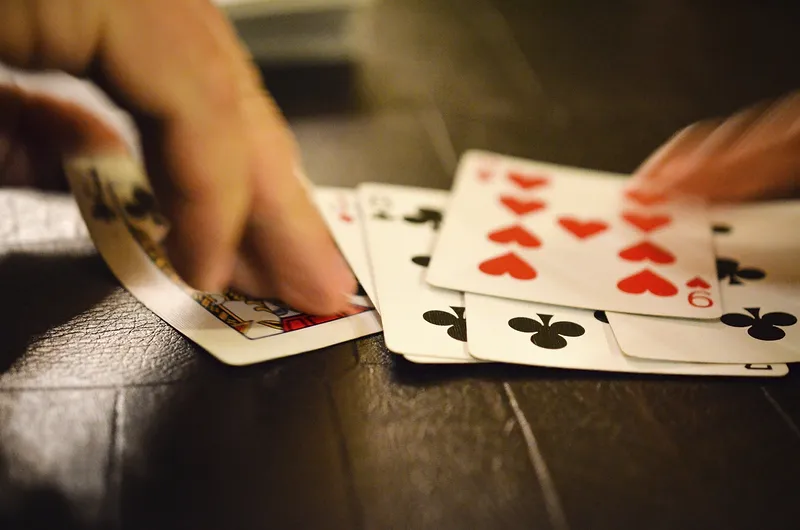
Photo by Rawpixel
Instead of Thinking about Individual Hands, Consider the Range
When playing poker, a range encompasses all the possible hands an individual player can have in any given scenario. For instance, Player X’s options could span from making a flush to simply throwing out an ace-high or bluffing with no cards at all.
Every conceivable option is part of their potential range for that hand, including pairs like top and middle pairs and draws and bluffs.
Regardless of the type of poker you play, one clear way to identify novice and average players is their thought process when pondering what their competitors might have.
Rookies tend to speculate on a specific hand, while experts think in broader terms – they consider entire ranges of hands. This approach can be precious for assessing pot odds. Thinking in this manner will make your poker playing significantly more successful!
Experienced poker players who have previously delved into multiple tournament strategies understand that player X will hold various hands, each with its rate of occurrence.
Instead of being fixated on finding the single optimal hand, they look to deduce those frequency rates and then play accordingly to succeed.
Most players tend to guess their opponents’ hands based on instinct, but poker has more effective strategies. One thing you should remember when honing your skills is that gut feeling, and strategic advice is mutually exclusive.
Making decisions during tournaments or cash games according to what ‘feels right’ will only lead to costly mistakes. Instead, always strive for a logical approach with well-researched strategical tactics.
Always remember to practice sound bankroll management—never bet an amount you can’t afford
It’s not just an adage that says it takes money to make money; it’s true! Even if your playing prowess exceeds all expectations, don’t be surprised when the cards are stacked against you – this happens in both cash and tournament play.
To ensure success, savvy players have realistic limits for their wagers to protect themselves from financial ruin due to bad luck or game conditions beyond their control.
When the WSOP poker gods determine that your rivals hit every flush draw, you could find yourself out of pocket if you need to be financially equipped. Having at least 25 times the buy-in for your game in reserve is recommended to ensure this doesn’t happen.
If money’s tight, then why not try online poker? Unlike real-money live gaming, free online games offer a much more economical way to hone and perfect your skills.
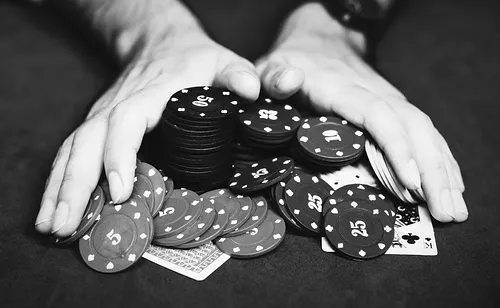
Photo by Rawpixel
Embrace the idea of defeat and use it as motivation to strive for success
Bad luck can be a significant detractor from your poker career. We will all have bad days where we draw poorly and lose games, but you mustn’t allow it to derail your confidence, or else achieving success in the cutthroat world of poker will become impossible.
Lady Luck can only do so much in poker. To be successful, you must also have mental fortitude – something that the legendary Phil Ivey demonstrates perfectly every time he takes a bad beat and merely shrugs it off without giving away his emotion.
This is why he’s one of the greatest players ever to exist! The same will apply to you, too: sometimes you’ll win, other times not; this is just part of being an expert poker player.
Wrap-Up
Becoming a good poker player ready for the WSOP is challenging and requires commitment. Although it takes hard work and dedication, the journey to success is worth it. For players who need help getting there, focusing on improving their strategy, keeping emotions in check, and taking advantage of available resources should be the foundation for success.
Ultimately, becoming a successful poker player comes down to making intelligent decisions. The best advice is to take it one step at a time and stay focused on the goal – winning the World Series of Poker! With passion, dedication, and continued effort to improve your skills, you have great potential for success at future tournaments. Good luck, and happy playing!
The post Great Strategies to Beat a Professional Player on your First WSOP Tournament appeared first on Championnat-De-Poker.
]]>The post How to Beat a Professional Player: Things You Need to Look Out for in a Poker Game appeared first on Championnat-De-Poker.
]]>It is challenging to beat out someone who plays such high stakes regularly. Still, with the proper knowledge and strategy, you’ve got one step closer to accomplishing this feat.
Below, we’ll discuss some practical tips and techniques to help increase your chances of succeeding in a competitive game like poker against pros.

Photo by Pixabay
Look at the player’s betting patterns.
Professional players are good at using bet sizes to manipulate their opponents and gain an edge. It would be best to pay attention to how much they are willing to invest in each hand and what ranges they put you on when they make a particular-sized bet or raise.
Do they often change their bet size drastically when they think they have something suitable? Are they betting more relative to the size of the pot?
See how your opponent bets in various scenarios to give you an idea of what kind of hand they may hold and allow you to respond accordingly.
Taking notes on these betting patterns will help you in future hands and also help you recognize any loose plays that might be signaling a weak hand. Sensing these patterns will give you greater control over the game and an advantage that can easily take down even the most challenging professional players.
Observe when and how much they are betting.
When playing a poker game with a professional, monitor the cards dealt and how much they are betting. Professional players often have sophisticated strategies for when to place large bets and when to play conservatively. Knowing the situation and reading their betting patterns can help you outmatch them.
Keep an eye on the amount they bet, mainly when they raise pre-flop or re-raise after one of your raises. Experience separates the winning players from losing ones, so practice playing free poker before taking on any serious competition.
Keep track of the cards played.
Know the cards used in a poker game when playing against professional players. An excellent way to do this is by tracking the board cards that appear during the game, especially if the player has folded or called pre-flop. If a particular card repeatedly appears, reducing how often you play out of position with that card might be wise to avoid being disadvantaged.
Awareness of released cards lets you know what your opponents may be holding and use that information to make better decisions. Keeping track of the cards played can give you the edge to defeat professional poker players.
Watch out for tells.
If you’ve ever walked into a poker game and looked around the table, you know how important it is to watch for tells. Even though everyone tries to keep a straight face and avoid unintentional physical reactions, facial expressions, and body language often give away what cards people hold.
Professional players understand this better than anyone else. They use tells to their advantage and can detect subtle hints from other players to help them make informed decisions during a game. To beat a pro at the poker table, you need to develop your ability to read these subtle indicators by paying close attention to the faces, postures, and actions of those around you.
Watching for tells can help you stay one step ahead of the competition and get an edge on even the most experienced poker players.
Stay calm and focus on your own game.
When playing against someone who has more experience or is more skilled, it’s easy to become intimidated, but this doesn’t have to be the case. Staying calm will make you think clearly and make smarter decisions while playing.
Successful players understand the importance of maintaining their style rather than copying what the pros do, so put aside any attempts to outdo your opponent. Instead, focus on refining your strategy for each hand.
By doing this, you might gain some insight into how pros approach certain situations, which could be helpful in the future.
Manage your bankroll.
While expert players may be less concerned with their bankroll, they know how to play conservatively and maximize their profits. The key for amateur players is to play slightly more aggressively and build up their bankroll early to have enough poker chips to stay in the game as it progresses toward later betting stages.
As such, successful money management requires beginner players to adjust their bets or folds judiciously relative to their current chip count. Moreover, players should never take risks beyond what they can afford, even if it means missing out on some likely wins.
Properly managing your bankroll during a poker game can give you a significant edge against professional players.

Photo by Pixabay
Playing poker against a professional player can make you win big. However, there are certain things you need to look out for to give yourself the best chance at winning. By following these tips, you’ll have a better probability of taking down a pro the next time you sit at the poker table. Set up an account and play online poker today.
The post How to Beat a Professional Player: Things You Need to Look Out for in a Poker Game appeared first on Championnat-De-Poker.
]]>The post Why You Should Start Playing Poker Online appeared first on Championnat-De-Poker.
]]>Poker has been around for centuries, but it has come a long way since its early days. It began as a game of chance and evolved into a strategic game of skill that requires cunning and knowledge. Not only has the range of stakes expanded from penny ante to high roller, the number of players allowed at one table increased significantly. The advent of technology has also revolutionized poker, ushering in online tournaments with thousands of participants, many competing for life-changing jackpots. In addition, poker’s global breakout boosted popularity with televised events featuring some of the best players in the world pitting their wits against each other. Lastly, technological advancements like hole card cameras and online poker have revolutionized the industry. Here are a few reasons you should begin your poker journey online.
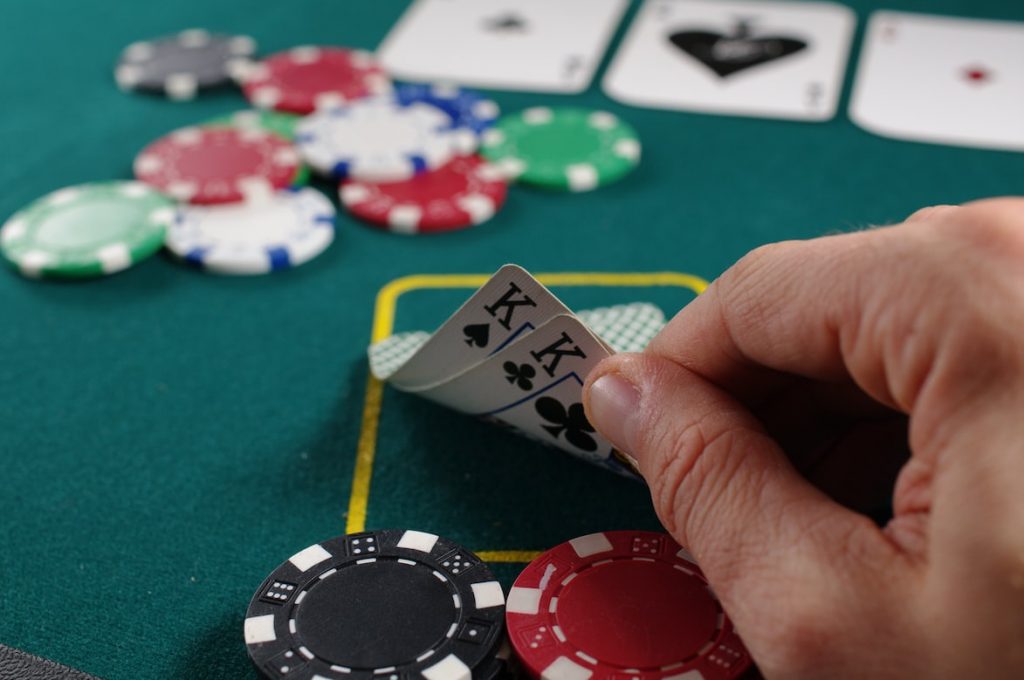
Online poker websites offer lucrative bonuses to entice and reward you for playing
For those looking to play poker for money, one of the top reasons to go online may be the opportunity to notch up some extra bonuses. Many online poker sites are incentive-based, offering bonuses for playing hands, reloading accounts, and entering special tournaments. These rewards stimulate players’ interest and keep poker enthusiasts coming back for more virtual card-tables fun. Whether your goal is to quickly add funds to your bankroll or just garner additional fulfillment from playing without an overarching challenge, poker sites have great support, like bonuses that give their enjoyers something extra.
Online poker is a much faster-paced game
When it comes to the thrills of playing poker, nothing quite compares to the speed and intensity of playing online. Unlike traditional poker games, where tables can take hours to finish a few hands, online poker is fast-paced, keeping players engaged while eliminating any part of the game that can feel tedious. Many online poker sites have convenient and easy-to-use features such as virtual chips, time limits per game, and organized tournaments, making the game more enjoyable and accessible. Additionally, since there are no physical opponents at an online table, it offers more opportunities for newcomers to engage in a comfortable and educational environment. With its quick pace and array of fun features, there’s no doubt why online poker stands out as one of the most significant forms of entertainment for lovers of card games.

Enjoy the comfort and convenience of playing poker online
Online poker has revolutionized the way people play their favorite games. This is especially true regarding convenience, as online players don’t need to leave their houses or even be pleasant to get lost in the thrill of a big tournament. At any point, whether in the day or night, finding a game that fits your financial plan and provides endless entertainment is effortless. Online poker also helps connect players worldwide, offering them rich experiences they wouldn’t otherwise find playing in a local casino. Many current stakes games were first created online and have not been available anywhere else until now. With graphically stunning interfaces and sophisticated Artificial Intelligence algorithms running the show, this is easily the most interactive version of poker on the market these days.
Online poker has a wide assortment of game types and formats
Online poker is the way to go if you want a game that offers more variety than traditional poker. With online options, you can choose from a more comprehensive selection of games than ever before. Whether it’s Texas Holdem, Pot Limit Omaha, Short Deck, or other forms of community and private poker, there is something for everyone. There’s no limit to the number of skills one can hone with the different variations of poker that are available in this format. If a specific game doesn’t suit you, you can simply switch to another one until something better comes. Since online poker happens fast and has a much shorter playthrough time than offline poker, it’s excellent for those who don’t want to lose hours of their day playing too many hands or otherwise fighting for literally nothing. Therefore, if you want access to more games and additional features and rewards from being connected to an online platform, online poker is undoubtedly your best bet!
Play online poker, and multitask
Online poker games are a favorite of many because you can do other things while playing. This is an attractive feature for poker players and those seeking entertainment, whether it’s watching TV, talking with friends, or surfing the Internet. You can get in on poker even if your schedule doesn’t allow you to dedicate hours. Online poker games are very convenient in that aspect. Their ease and convenience have made them one of the most popular poker forms today, and they are often more affordable than poker played in person. Whether you’re looking for a way to pass the time or make some extra cash, online poker offers increased accessibility and opportunities.
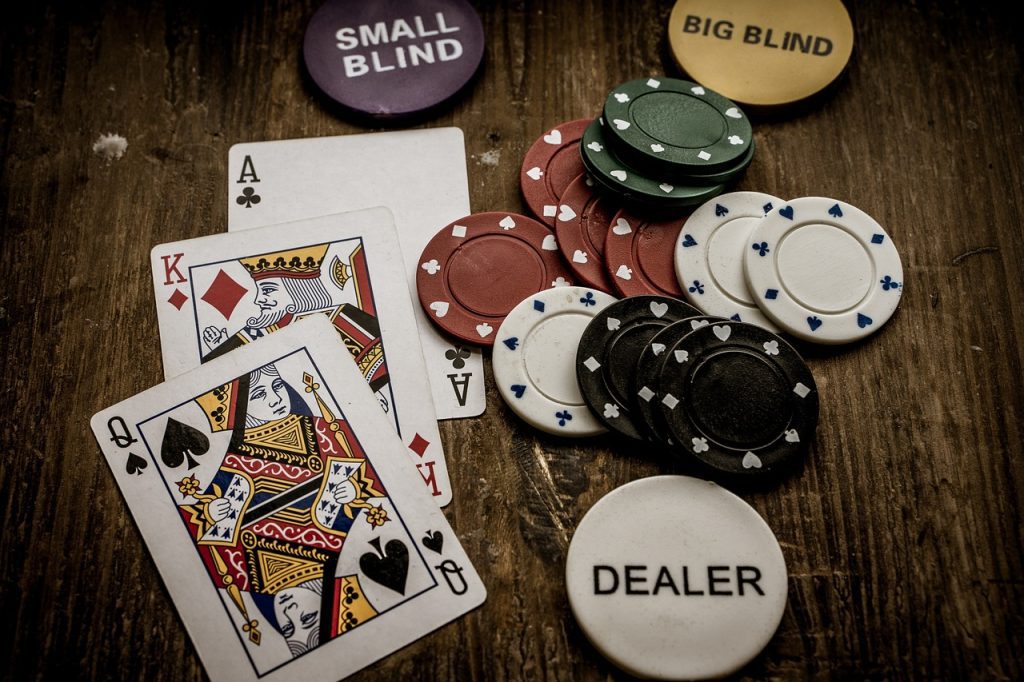
Try online poker today!
Now that you know some reasons why people enjoy playing online poker, maybe it’s time to try it. After all, nothing stops you from choosing a site from the myriad of options and giving it a go. Who knows, you might find yourself enjoying it more than you thought. The best way to find out is by giving it a shot and reading the poker guide. So what are you waiting for? Grab a seat at a reputable virtual table and see what all the fuss is about.
The post Why You Should Start Playing Poker Online appeared first on Championnat-De-Poker.
]]>The post Texas Holdem for Beginners: The Two Passive Styles appeared first on Championnat-De-Poker.
]]>Poker is often seen as a game of luck, but the truth is that it takes a great deal of skill to be successful. You can employ countless strategies and techniques, with none being the best in every situation. While this strategic depth may intimidate beginners, there’s an abundance of resources online to help you learn the game. This poker guide is one of them, and it will teach you one of the most fundamental unwritten rules of poker: Being aggressive. It will cover the two main passive playstyles and explain their main flaws.

Poker playstyles: Tight and loose, passive and aggressive
In poker, “tight” and “loose” refer to the number of hands a person plays. A tight player plays few hands, sticking to premium ones like AA and AK. A loose player plays a lot of hands and is more willing to play ones without guaranteed value. Passive and aggressive describe how a person plays their hands. Passive players prefer to check and call, while aggressive players are not afraid to bet and raise. The four main poker playstyles are created from combinations of tight/loose and passive/aggressive. They are tight-passive, loose-passive, tight-aggressive, and loose-aggressive.
Tight-passive: An overview
In poker, the tight-passive playstyle is characterized by its cautious approach. Players who adopt this style typically only play a small number of hands and are quick to fold if they do not have a strong hand. They also tend to check or call rather than bet or raise, which keeps the pot size small. Many beginners resort to this style because they fear confrontation, which brings problems. Tight-passive players often get nicknamed rocks because of their rigid playstyle of doing nothing until they get a solid hand.
Loose-passive: An overview
The loose-passive playstyle in poker is characterized by a low frequency of betting and raising combined with a high frequency of calling. While they play many hands, they are unwilling to try and bluff, instead calling even when the odds of their hand improving are terrible. Many beginners also adopt this playstyle, as they feel that betting could be a waste of money but still want to continue with their hands. Loose-passive players are often nicknamed calling stations because of said overreliance on calling.
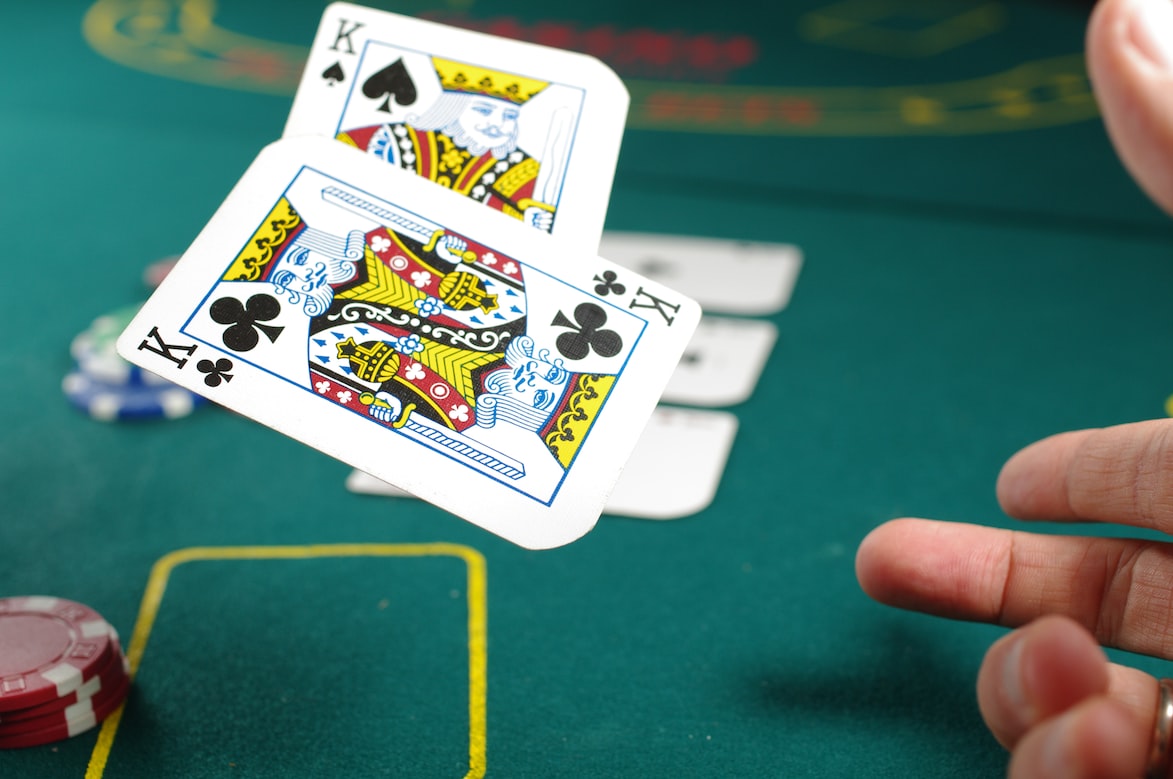
Tight-passive flaws
Any experienced poker player knows that the tight-passive playstyle has its flaws. First, players who adopt this strategy can be easily bluffed. Their starting hand selection means skilled players will. Second, their predictable nature makes it easy for opponents to deny them profit. Players effectively telegraph their hands to their opponents by playing tightly and passively. As a result, skilled opponents can easily exploit their weaknesses and take their chips. Finally, the nature of the tight-passive playstyle means that players aren’t maximizing their potential profits. While the tight-passive playstyle sounds decent on paper, its predictable nature makes it difficult for players to win big pots.
Loose-passive flaws
While the loose-passive playstyle can sometimes work in very low-stakes games, it is generally a significant mistake in anything more serious. The reason for this is that the blinds eaten up by playing so many hands quickly add up, and unless you are constantly winning big pots, it is challenging to make up for these losses. Furthermore, by playing so many hands, you are likely to run into situations where you are outmatched by players who are more aggressive or who simply have better cards. As a result, if you want to be successful in poker, adopting a more tight-aggressive or loose-aggressive approach is essential.
Why is being passive bad?
As you may have noticed, both the tight and loose-passive playstyles have many flaws. Being passive in poker is generally a bad idea for several reasons. For one, it can lead to missed opportunities. If you’re not actively betting or raising, you’re not giving yourself a chance to win pots without a good hand. Being passive can also make you an easy target for more aggressive players. If you’re not putting any pressure on your opponents, they can easily outplay you by betting and raising when they have strong hands and taking down pots that you could have won. Finally, passive play can simply be boring. Poker is supposed to be a fun and exciting game, but it might not be enjoyable if you’re just calling and checking all the time. So if you want to be a successful poker player, you must be willing to take risks and be more aggressive. Otherwise, you’ll likely find yourself stuck in the middle of the pack with little chance of winning.

Where to play online poker
We hope this article taught you about one of the most critical unwritten {{Texas Holdem rules}}: You must be aggressive. The next time you sit down at the table, keep these tips in mind and sign up for an account at GGPoker, the world’s largest poker room. With a wide variety of poker games and formats, you will surely find plenty of competition (and fun) at GGPoker.
The post Texas Holdem for Beginners: The Two Passive Styles appeared first on Championnat-De-Poker.
]]>The post Poker Strategy: How to Beat Limpers (And When to Limp) appeared first on Championnat-De-Poker.
]]>While poker is easy to learn, it can be hard to master, especially Texas Holdem. The game’s near-endless strategic depth is one of the main reasons for this. Players must constantly adjust to the game’s ever-changing dynamics, like opponent playstyles and board state. One can employ numerous techniques and strategies, with no particular best playstyle in every situation. That strategic depth means beginners will often make obvious mistakes, which you can use to your advantage. This poker guide will cover one such mistake, which is limping pre-flop. It will explain everything from why it’s a mistake to when you should consider it.
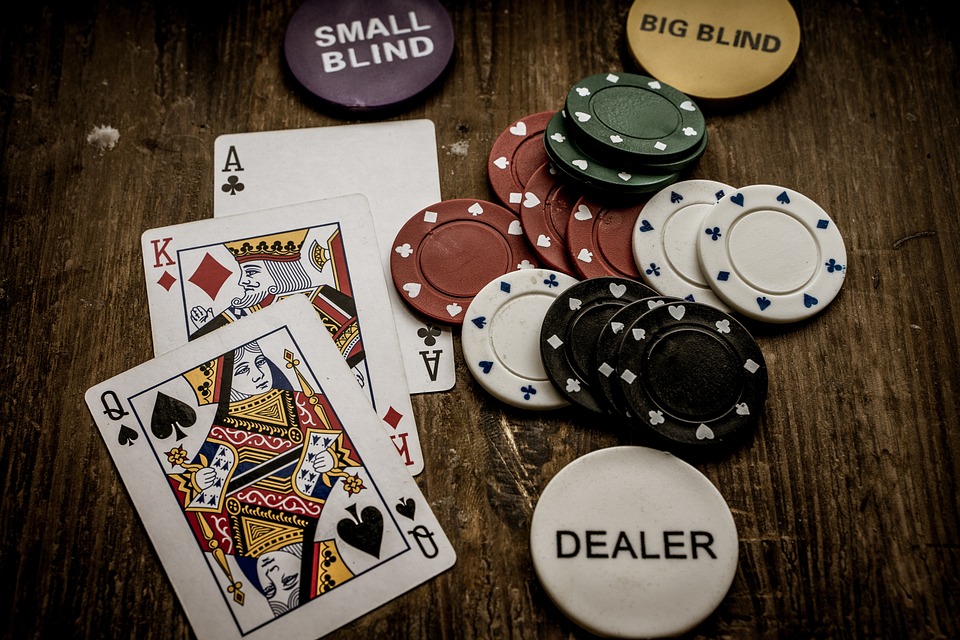
What is limping?
In Texas Holdem, limping is the act of calling the big blind instead of raising or folding. In most cases, limping is a weak play that indicates a player who is either new to the game or doesn’t have a strong hand. The two forms of limping are open-limping and over-limping. Open-limping occurs when the first player to act calls the big blind. Over-limping occurs when a player calls the big blind after one or more other players have also called it. Open-limping is the more significant mistake of the two, as over-limping can allow you to see a cheap flop and is an informed decision, while open-limping is blind and accomplishes nothing.
Why is limping bad?
Limping in poker is generally considered to be a bad idea. There are a few reasons for this. First, limping gives your opponents more information about your hand. If you raise, they may get scared and fold, but if you just limp, they know that you likely have a weak hand. Second, limping means you are investing less money in the pot, which means you will win less if you have a good hand. Finally, limping does not give you any information or chance to win the pot outright. A raise gives you information based on how your opponents respond to the bet, and if they all fold, you win the pot. Limping doesn’t do this; it is essentially just throwing money away since you rarely see the flop cheaply with a limp. So overall, it’s usually better to raise or fold pre-flop than to limp.

Beating limpers: The tight way
In a more experienced play, you would often want to play tighter against limpers. That is because players at that level understand limping and usually do it with a hand strong enough to play from an early position. They would also usually limp if the players after them 3-bet frequently, so the limp controls the size of the pot and prevents it from getting out of hand. Against players like these, you should probably stick to your best hands and respect them when they limp.
Beating limpers: The loose way
Most beginners, however, do not understand limping at all. They will limp with terrible hands, and the best way to beat these players is by playing much looser. These players are passive and likely do not grasp the game well, so they would seldom punish you by 3-betting. They’re likely to be loose-passive players, and you can use this to your advantage. Don’t try to bluff them; instead, utilize their overreliance on calling. You can use them for great value whenever you have a made hand, and you can afford to play even weaker hands because of their loose range.
When to limp
Limping, while often a suboptimal play, has its niche uses. More specifically, over-limping is an excellent option when facing multiple limpers with a drawing hand. You can use their open limps to your advantage and attempt to see a cheap flop. Outside of over-limping, one of the only scenarios you would want to open-limp is when the players after you 3-bet often. Even when this is the case, you want to limp with a balanced range of bluffs and value hands. Finally, limping is also better from the blinds than any other position. You have better odds of calling from the blinds since you already have money in the pot, though you should still avoid playing too many hands from the blinds due to their positional disadvantage.

Where to practice poker
Limping is a common beginner mistake, and now you know exactly how to exploit that. We hope this article taught you how to play Texas Holdem better. If you want to practice your skills, sign up at GGPoker, the world’s largest poker room. With countless poker games, you can guarantee you’ll find one that suits you.
The post Poker Strategy: How to Beat Limpers (And When to Limp) appeared first on Championnat-De-Poker.
]]>The post Poker Strategy: Should You Ever Slow Play? appeared first on Championnat-De-Poker.
]]>Because of this strategic depth, there are a lot of different schools of thought when it comes to playing poker, with no one strategy always being the best in every situation. One of the most debated poker strategy topics is whether or not to slow play. Some players swear by it, while others think it’s a terrible idea. So, which side should you believe? Let’s look at both sides of the argument and see what makes the most sense.

What is slow playing in poker, and why would you do it?
In poker, slow play is a deceptive tactic to disguise your hand’s true strength. The goal is to induce your opponents to bet more than they would if they knew the true strength of your hand, thus increasing the size of the pot. There are a few different ways to execute a slow play, but the most common is to bet less than you otherwise would on a solid hand. You can do this by checking or calling instead of betting or raising or making small bets instead of large ones. The key is to be subtle and not give too much information about your hand. If done correctly, slow play can trick your opponents and increase the number of players in the pot, but this may not always be a good idea.
The benefits of slow play
One of the most significant advantages of slow playing is that it allows you to disguise the strength of your hand. This can make your opponents underestimate you and encourage more players to join the pot. As a result, slow playing can potentially grow the size of the pot significantly. Of course, there is always the risk that your opponents will see through this tactic, but if executed properly, slow playing can be a potent tool.

The risks of slow play
While slow play can be deceptive, having more people in the pot rarely works in practice. This is why slow play is often considered a beginner’s mistake in poker. More players in the pot mean you are less likely to win, even with a solid hand pre-flop, since the other players could have strong draws like straights or flushes. Slow play rewards those drawing hands since instead of raising to ensure they cannot make it to the next round, you give them a free pass to complete their draws and win. Having a lot of players in the pot also doesn’t necessarily mean a bigger pot. Since you rely on other people betting for you, you may not get the chance to build the pot when playing with passive players.
When to use slow play
Slow play isn’t a strategy you can use most of the time, but it isn’t terrible, either. It has its niche uses, mainly when dealing with loose-aggressive poker players. Loose-aggressive players are a specific type of poker player who tends to play a lot of hands and make large bets. They are also known as “LAGs.” While they can be challenging to play against, slow play can be an effective strategy. LAGs generally want to see a lot of action, so you can force them to put more money in the pot by playing your hand slowly. You can also use slow play to bait them into making big bets that you can then call or raise. Be careful not to become predictable with your slow play and lose the pot. When used correctly, slow play can be a powerful tool for winning against loose-aggressive poker players.
When to avoid slow playing
Most of the time, slow play is not the way to go. For example, if you’re holding a hand with a lot of potential but little chance of actually improving, slow playing can give your opponents a chance to outdraw you. Similarly, if you’re up against tight players who are unlikely to make big bets, it may be better to take a more aggressive approach. In general, slow playing should only be used when you’re confident that you have the most substantial hand and that your opponents will pay you off if you give them a chance to catch up. Otherwise, it’s usually better to bet more aggressively to build a bigger pot.

Where to practice poker
Slow playing has its place in poker. But it’s essential to understand its many limitations and when not to use it. If you want to learn more about slow-playing poker hands, sign up today with GGPoker, the world’s largest poker room. It has an endless variety of online poker game formats, allowing you to find the perfect poker games for yourself!
The post Poker Strategy: Should You Ever Slow Play? appeared first on Championnat-De-Poker.
]]>